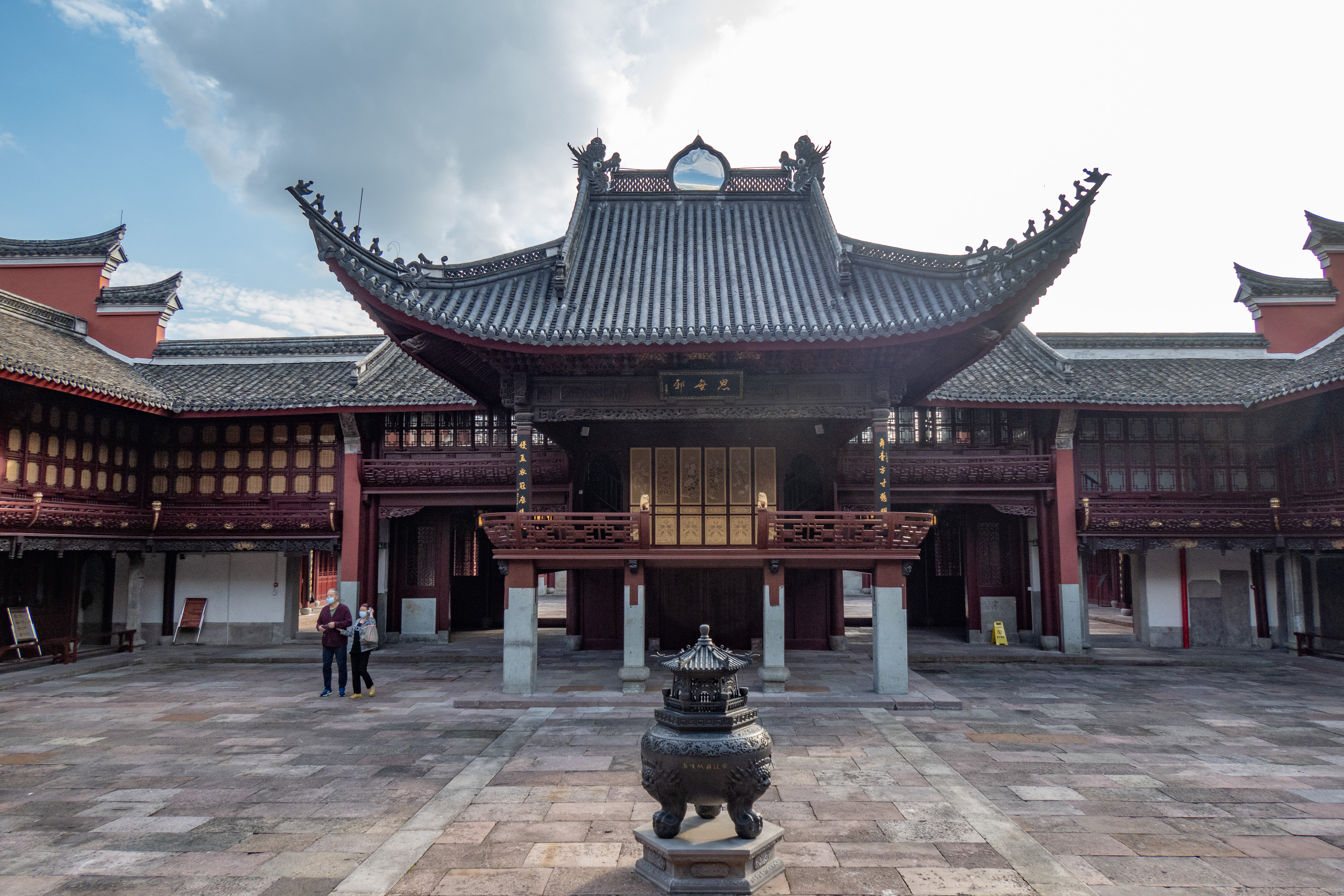
Key Takeaways:
-
Ningbo blends rich maritime history, ancient temples, and modern architecture into a culturally immersive destination year-round.
-
From portside promenades and art museums to scenic mountains and Buddhist landmarks, Ningbo offers a diverse array of experiences for every traveler.
-
This guide reveals ten engaging and accessible things to do that reflect Ningbo’s charm as one of China’s oldest yet most forward-thinking cities.
Ningbo, located in China’s Zhejiang Province, is a historic port city that has thrived for over 7,000 years. Known as one of the earliest cities in China to open to foreign trade, Ningbo today balances a rich cultural legacy with modern energy. Once a vital part of the Maritime Silk Road, the city is home to centuries-old temples, vibrant shopping streets, innovative museums, and stunning natural landscapes. Its coastal position gives it a unique rhythm, with waterfront parks and seafood cuisine woven into daily life. Visitors love Ningbo for its walkable layout, friendly locals, and deep sense of heritage that’s still very much alive today.
Table of Contents
-
Walk through the ancient Tianyi Pavilion Library
-
Discover Buddhist heritage at Baoguo Temple
-
Take in skyline views from the Ningbo Museum of Art
-
Stroll the Ningbo Old Bund waterfront district
-
Hike the lush trails of Dongqian Lake Scenic Area
-
Visit the Ningbo Museum designed by Wang Shu
-
Shop and snack through Moon Lake Park and Zhongshan Road
-
Explore the Ningbo Port and Maritime Museum
-
Enjoy a concert at Ningbo Grand Theatre
-
Take a ferry to Putuo Mountain for a spiritual day trip
1. Walk through the ancient Tianyi Pavilion Library
Tianyi Pavilion is the oldest existing private library in Asia, built in the 16th century during the Ming Dynasty. Set in a peaceful garden complex, this cultural landmark is not only a historical treasure but also a scenic escape from Ningbo’s modern buzz. Ancient stone tablets, well-preserved manuscripts, and classic Suzhou-style landscaping make it a haven for history lovers and architecture admirers alike. As you walk through the corridors, you’ll feel the deep reverence for knowledge and learning that shaped traditional Chinese culture.
The surrounding grounds include rockeries, pavilions, and a lotus pond, adding to the tranquil experience. It’s a fantastic place to spend a couple of slow-paced hours reading placards and absorbing history at your own pace. Guided tours are available, though it’s also enjoyable to simply wander. Tianyi Pavilion offers a quiet and inspiring start to your Ningbo exploration.
2. Discover Buddhist heritage at Baoguo Temple
Located at the foot of Mount Ling, Baoguo Temple is one of China’s oldest wooden temples, dating back to the Northern Song Dynasty over 1,000 years ago. The structure’s remarkable preservation, despite countless earthquakes and wars, showcases ancient Chinese architectural ingenuity. Inside, you’ll find wooden beams without nails, ornate carvings, and statues that have witnessed centuries of devotion. The temple complex is set amidst thick forests, adding a layer of serenity to its spiritual significance.
Baoguo Temple also includes a small museum that explains its cultural and religious importance over time. The peaceful environment is ideal for meditation or just soaking in the ambiance of a sacred space. It’s a lesser-known site compared to other temples in China, which means you can often enjoy it without crowds. This is a hidden gem for anyone seeking a deeper connection to Chinese heritage.
3. Take in skyline views from the Ningbo Museum of Art
Perched near the waterfront in Ningbo’s eastern district, the Ningbo Museum of Art is a striking space dedicated to contemporary Chinese art and international exhibitions. Its large glass walls allow for plenty of natural light and also give visitors excellent views of the skyline and surrounding riverfront. The museum frequently hosts rotating exhibits, featuring both local and global artists working in a variety of mediums. Whether it’s abstract painting, sculpture, or multimedia, there’s always something new to discover.
After viewing the galleries, many visitors relax in the museum café or explore the riverside path that wraps around the area. The building itself is a work of art, combining modernist structure with traditional design influences. It’s a fantastic way to get a feel for Ningbo’s growing role in China’s contemporary cultural scene. Entry is usually free or very affordable, making it accessible for all.
4. Stroll the Ningbo Old Bund waterfront district
Ningbo’s Old Bund predates even Shanghai’s famous Bund and offers a fascinating glimpse into the city’s early foreign trade era. This riverside area blends European-style architecture with modern restaurants, cafes, and boutique shops. Walking along the promenade, you’ll see 19th-century churches, old customs buildings, and modern murals that tell the story of Ningbo’s portside evolution. It’s both visually striking and deeply atmospheric, especially when lit up in the evening.
The Old Bund is also a nightlife hub, with craft breweries, jazz bars, and rooftop lounges offering a modern twist on the city’s old soul. During the day, families and photographers stroll the area, enjoying the juxtaposition of colonial facades and contemporary culture. Whether you come for history, a riverside dinner, or people-watching, the Old Bund delivers charm in every direction.
5. Hike the lush trails of Dongqian Lake Scenic Area
Dongqian Lake is Ningbo’s largest freshwater lake and a top destination for outdoor enthusiasts, photographers, and those seeking a day of calm by the water. The area around the lake includes walking trails, temples, gardens, and even small guesthouses for extended stays. Popular spots like Fuquan Mountain Temple and the Dongqian Lake Water Conservancy Scenic Zone give you a mix of nature and cultural landmarks to explore.
Rent a bike to circle the lake or take a boat ride for panoramic views of the hills and shoreline. You’ll encounter plenty of shaded paths ideal for picnicking or simply unwinding. The lake is especially beautiful during sunrise or autumn when the leaves turn golden. Whether you go for a hike, a paddle, or a slow scenic drive, Dongqian Lake is Ningbo’s top choice for reconnecting with nature.
6. Visit the Ningbo Museum designed by Wang Shu
The Ningbo Museum is not just a place to learn about the city’s past—it’s a piece of art in its own right. Designed by renowned architect Wang Shu, winner of the Pritzker Architecture Prize, the museum fuses modern design with traditional materials like recycled tiles and bricks. The building itself represents Ningbo’s fusion of old and new, drawing inspiration from both ancient mountain villages and industrial innovation. Inside, exhibits cover everything from prehistoric relics and maritime trade to local folk customs and urban development.
The museum is especially engaging for those interested in architecture, design, or urban studies. Spacious and airy, it’s a comfortable place to explore for a couple of hours. English signage is available throughout, and admission is often free. For anyone who appreciates structure, culture, and storytelling, the Ningbo Museum is a must-visit.
7. Shop and snack through Moon Lake Park and Zhongshan Road
Moon Lake Park is a scenic green space tucked into the center of the city, featuring a charming lake, stone bridges, traditional pavilions, and shaded walkways. It’s a favorite among locals for reading, painting, or practicing tai chi in the early morning hours. From the park, it’s an easy stroll to Zhongshan Road, one of Ningbo’s most vibrant shopping and food streets. Here, the city’s youth culture comes to life through pop-up stalls, boutiques, tea shops, and street food vendors.
This area is ideal for a slow afternoon or casual evening exploration. Try popular local snacks like tangyuan (sweet rice balls), Ningbo-style dumplings, and baked youtiao with soy milk. During holidays and festivals, the entire area lights up with traditional lanterns and pop-up performances. Moon Lake and Zhongshan Road together form a perfect blend of peaceful and playful Ningbo.
8. Explore the Ningbo Port and Maritime Museum
Ningbo is one of the world’s busiest ports, and its Maritime Museum gives fascinating insight into the city’s seafaring legacy. With large-scale models, interactive displays, and ancient navigation tools, the museum charts the development of Ningbo as a major hub along the Maritime Silk Road. You’ll learn about old trading routes, shipbuilding, customs operations, and modern port logistics.
The museum is ideal for families and curious travelers who want to understand how this coastal city helped shape global trade. Located near the modern port zone, it’s often combined with a waterfront stroll or seafood lunch in the area. Whether you’re a history buff or just love ships and ocean stories, the Maritime Museum is a highlight.
9. Enjoy a concert at Ningbo Grand Theatre
Situated by the scenic Ruyi Lake, the Ningbo Grand Theatre is an architectural gem that hosts year-round performances ranging from opera and classical music to contemporary dance and children’s theater. Its design mimics a floating ribbon on water, and the interior is just as elegant as its exterior. As a major cultural venue, it attracts international acts as well as Chinese performers, with excellent acoustics and comfortable seating throughout.
Even if you don’t attend a performance, walking around the theatre’s surrounding plaza in the evening is worth the visit. Light installations reflect on the lake, couples walk hand-in-hand, and food vendors sell warm snacks nearby. If your trip aligns with a scheduled performance, it’s one of the best cultural experiences you can have in Ningbo.
10. Take a ferry to Putuo Mountain for a spiritual day trip
While technically outside of Ningbo, Putuo Mountain is one of China’s Four Sacred Buddhist Mountains and makes for a powerful day trip from the city. Ferries leave from nearby Zhoushan and take you across to the island, where temples, pagodas, and prayer halls are nestled into pine-covered hillsides. It’s a deeply spiritual place where pilgrims and travelers alike find peace and reflection.
Highlights include Puji Temple, Huiji Temple, and the giant golden Guanyin statue overlooking the sea. Walking trails connect all the major sites and provide moments of stunning coastal beauty. Vegetarian meals are available at the temples, adding to the authentic spiritual experience. If you want to blend nature, culture, and meaning in one trip, Putuo Mountain is the place to go.
What to do if you have kids?
Ningbo is a surprisingly kid-friendly city, offering a balance of educational and playful experiences. Children will love the Ningbo Science Exploration Center with its hands-on exhibits, while parks like Dongqian Lake and Moon Lake offer space to run, boat, and snack outdoors. The Ningbo Zoo and Wildlife Park is another great option for animal lovers. Many attractions like the Maritime Museum and Tianyi Pavilion offer kid-sized exhibits and family guides. With clean facilities and safe transit, Ningbo makes traveling with kids easy and engaging.
Where can I find free events in Ningbo China taking place this weekend?
To find free and family-friendly events in Ningbo this weekend, check out https://planmyweekend.ai. This free tool helps you discover cultural festivals, outdoor concerts, art markets, seasonal fairs, park yoga meetups, and more—without the usual hassle of endless searching. Whether you’re a local or traveler, the site curates the best of what’s happening in real time so you can enjoy Ningbo’s lively community with no cost and no guesswork.
Final Thoughts
Ningbo is a city that rewards exploration—with layers of history, a peaceful rhythm, and unexpected gems tucked between temples and tech hubs. Whether you’re gazing at pagodas, cycling around lakes, savoring traditional dishes, or listening to live music at the Grand Theatre, you’ll find a little of everything here. It’s not just a destination—it’s a conversation between past and present, local and global, peaceful and progressive. Plan wisely, leave room to wander, and let Ningbo surprise you every step of the way.
Author: Dejon Brooks
Dejon Brooks is an entrepreneur who founded Trend Watchers with his life savings. Aged 24, Dejon has turned Trend Watchers into a successful business. After reaching over 150M+ people on his personal accounts, he now spends his time growing Planmyweekend.ai


